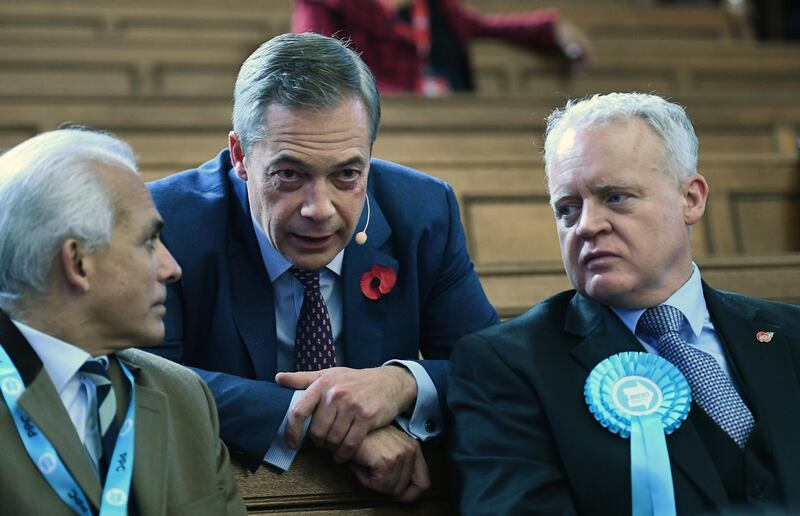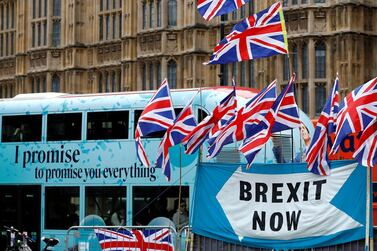Once allies in the cause of Brexit, leading members of Boris Johnson's government attacked the Brexit Party leader Nigel Farage on Monday for pressing forward with plans to stand candidates across the country.
Jacob Rees-Mogg, the leader of the House of Commons, took to the radio studios to warn Mr Farage that a split among those who wanted to leave the EU could be damaging for the cause. While he heaped praise on Mr Farage for his contribution to the Eurosceptic cause, he warned of the risks of snatching defeat from the jaws of victory by fighting the Tories and splitting the pro-Brexit vote.
“Nigel needs to recognise that he has won,” Mr Rees-Mogg said. “[It] risks us losing Brexit altogether”.
After Mr Johnson spurned a suggested pact with Mr Farage, the Brexit leader unveiled its list of candidates at a rally in central London. From the stage, Mr Farage hit back at Mr Rees-Mogg.
"What kind of conceited arrogance is this?" he asked. "There will be no Brexit without the Brexit Party."
The veteran campaigner has said that he won't back Mr Johnson's deal with Brussels to leave the EU on January 31, claiming it tied Britain too close to the European bloc.
“It’s not Brexit,” he said. “We won’t split the vote. We will be the only people actually offering Brexit.”
The almost 600 would-be candidates face a two-week wait for Mr Farage to give the green light for a nationwide campaign.
Meanwhile the latest poll published on Monday gave the Conservatives a seven percentage-point lead over the opposition Labour Party ahead of the December 12 election.
ICM's first poll of the election campaign put the Conservatives on 38 per cent and Labour on 31 per cent. The pro-European Union Liberal Democrats had the support of 15 per cent of those surveyed, while the Brexit Party was on 9 per cent.
Jeremy Corbyn wants to have another EU Referendum and debate Brexit for years.
— Boris Johnson (@BorisJohnson) November 4, 2019
I want us to #GetBrexitDone so that we can get on with delivering on Britain’s priorities: safer streets, better hospitals and improved schools. #VoteConservative
The poll of 2,047 people, carried out online between November 1 and 4, shows a narrower gap than recent surveys from other pollsters, which have put the Conservatives between 8 and 17 percentage points ahead of Labour.







